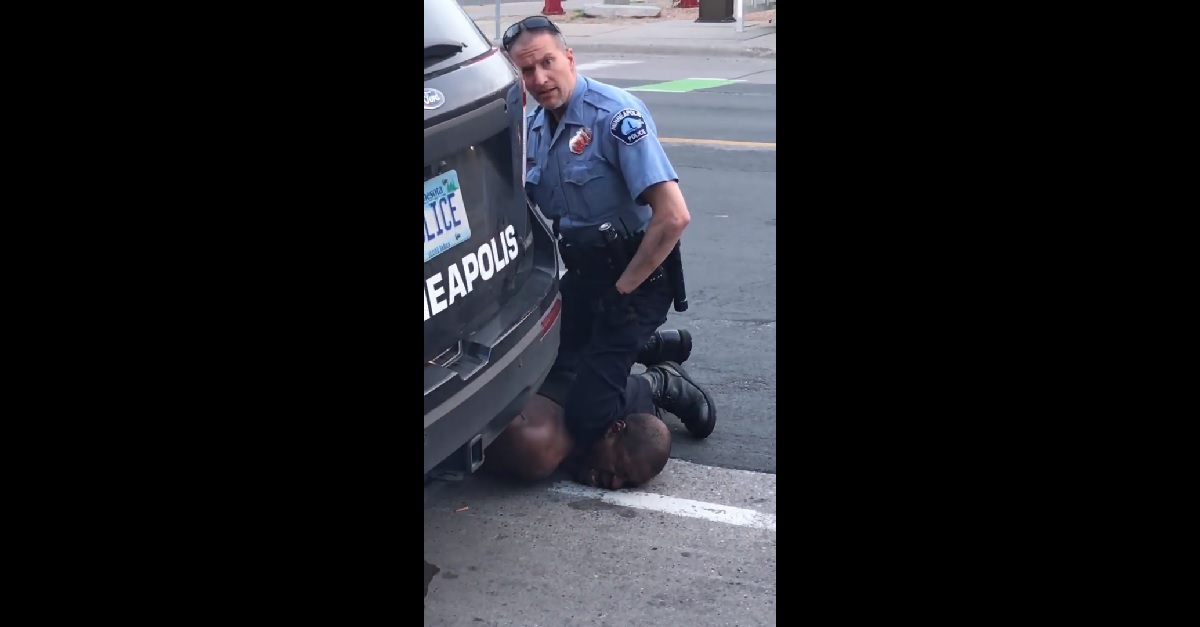
Minnesota District Court Judge Peter A. Cahill on Friday afternoon denied requests, including those filed by the Law&Crime Network, to broadcast hearings leading up to the trials of four former Minneapolis police officers accused of murdering or playing a role in the murder of George Floyd. Cahill did not rule on whether cameras would be allowed in the actual trials; those decisions will be made at a later date, he said.
Attorneys for all four of the ex-officers, Derek Chauvin, Tou Thao, Thomas Kiernan Lane, and J. Alexander Kueng, consented to audiovisual coverage of the case. The defense attorneys even went so far as to say that any objection by the state to such coverage would violate the defendants’ constitutional rights. The defendants collectively said they wanted the public to see their side of the case after weeks of leaks and statements against their interests them by state actors such as the police, the mayor, and the governor.
As Law&Crime explained earlier Friday, Minnesota’s relatively new rule which allows cameras in criminal trials requires all parties to a proceeding to consent to the presence of cameras. “[T]he State by email objected to such coverage,” the judge wrote. So, despite the agreement of all four defendants, cameras will not be allowed.
Aside from the issue of consent, the judge said that “hearings that take place outside the presence of the jury, including hearings to determine the admissibility of evidence and to determine motions, are not appropriate court proceedings for visual or audio reproduction” (internal punctuation omitted).
Coverage of pretrial hearings is usually allowed in states with more liberal camera access rules; however, some states ban cameras from courtrooms altogether.
Despite defense arguments to the contrary, the judge ruled that limiting broadcast coverage of pretrial hearings would help ensure a fair trial. “Given that this is a case that has already received substantial pretrial media coverage,” the judge wrote, “the Court finds that audio or video coverage of the pretrial hearings in this case would not only violate [court rules], but would risk tainting a potential Hennepin County jury pool.”
“IT IS HEREBY ORDERED There will be no audio or visual recording or reproduction of any pretrial hearing in this matter except the recording made as the official court record,” the court’s order concluded. “Audio or visual recording of trial proceedings will be decided at a later date by separate order.”
Prosecutors similarly objected to broadcast coverage of pretrial hearings in the high-profile trial of Mohamed Noor, another Minneapolis officer accused of shooting and killing a civilian. However, the defense did not. Both sides further objected to coverage of the trial itself in that case, and no cameras were allowed in court.
READ the decision in the George Floyd cases below.
George Floyd Trials – No Broadcast Order by Law&Crime on Scribd
[image via Facebook video screen capture]